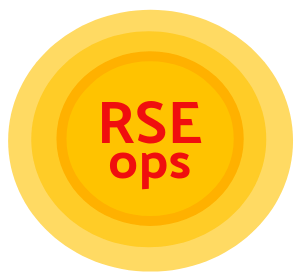
Permissions for RSE-ops vs. DevOps
One of the biggest challenges of using an HPC system is likely permissions. Although users can pull from container registries or install software from repositories, they are not permitted to write to anywhere other than a standard home or scratch space. While some users have project spaces that are shared by multiple users, they can be a pain to manage. This is in contrast to a cloud environment where it’s fairly easy to spin up a new instance and be root to do whatever you please. This is unlikely to change, and will be a factor that needs to be worked around.
This isn’t to say that root should be always required, or that allowing the user to have it is best practice. Container technologies are increasingly going "rootless," meaning they can operate fairly successfully in user space [1], [2], [3]. Arguably, if the HPC community had been more involved with the Open Container Initiative (OCI) earlier, "rootless" containers would have been a prominent point earlier and we’d be farther along now. There is clearly no "fix" to give a user extended permissions, but rather software that can empower them to deploy their user stacks without asking for permission. Along with rootless container technologies, package managers like pip or conda can make it easy to install software in user space.
- “Charliecloud: unprivileged containers for user-defined software stacks in HPC.” https://dl.acm.org/doi/10.1145/3126908.3126925. [bibtex]
- “Podman - : A tool for managing OCI containers and pods.” Jan-2018. [bibtex]
- R. Priedhorsky, R. Shane Canon, T. Randles, and A. J. Younge, “Minimizing privilege for building HPC containers,” Apr. 2021. [bibtex]
